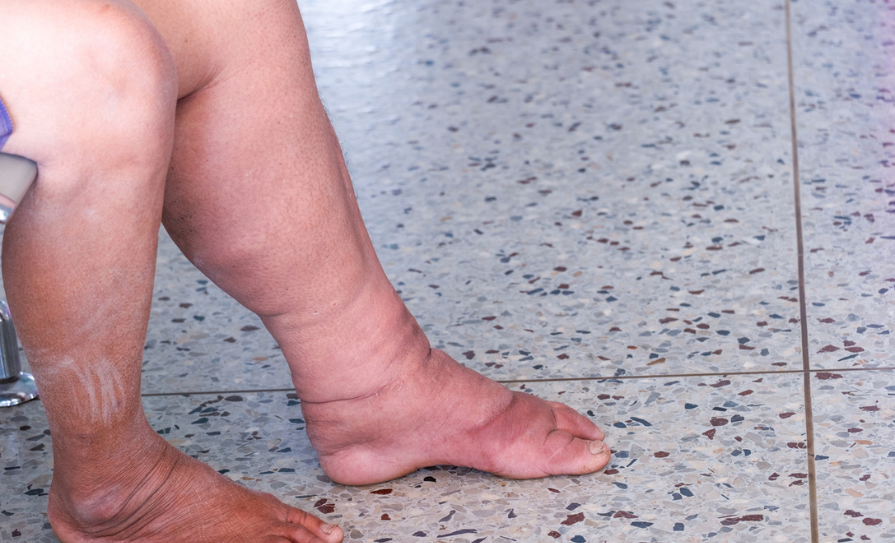The Irish Cancer Society has announced that its funded pilot project, which aims to detect and prevent cancer-related lymphoedema at University Hospital Limerick (UHL), is improving patient outcomes and quality-of-life. The three-year pilot service at UHL is the only one of its kind in an acute hospital outside of Dublin.
Evidence since the establishment of the service shows that interventions such as early assessment, patient education, and ongoing monitoring have significantly reduced the risk of lymphoedema development. Incidence of clinical lymphoedema in patients attending the UHL service is currently 1.5 per cent, compared with international figures ranging between 21 and 30 per cent. Of 294 breast cancer patients seen in the first 19 months, 43 showed early signs of lymphoedema. Of these, 30 resolved with treatment, while 13 continue to undergo treatment to reverse or reduce the swelling.
Service user and breast cancer survivor Orla Brennan, a swimming coach from Newmarket-on-Fergus, Co Clare, described her experience with lymphoedema, having received her diagnosis of breast cancer in November 2021. She said: “Initially, I didn’t know much about lymphoedema other than it is the nasty cousin of breast cancer. Lymphoedema can be very debilitating and distressing so it’s very deflating for a patient to hear that after your surgery, which in my case included a full axillary clearance of the lymph nodes, that you are not done; that you are still in it and that there is another thing called lymphoedema to worry about.”
The service at UHL includes referral of all breast and gynaecological cancer patients who are receiving treatment and are deemed high risk for lymphoedema to a senior physiotherapist. Each patient has their lymphoedema index score measured before and at regular intervals during their treatment for up to two years. A key part of the process also involves the measurement of fluid in the limbs using a bio-impedance machine. If required, patients will then be treated with compression garments, skin care, and tailored exercise programmes, and monitored for up to two years. The programme also offers education and information sessions, online resources, and support to patients throughout their involvement with the project.
Ms Brennan added: “What I have found incredible about the early detection service is the patient education. I think
that knowledge really is power and the more you educate yourself about something, the more you can do something about it. The specialist physiotherapist in lymphoedema helped me in very simple language to understand the risk I faced of developing lymphoedema and what to look out for.”
Corrinne Hasson, Director of Services at the Irish Cancer Society, also welcomed the programme and its positive influence on patient experiences. She said: “We are thrilled to see the incredible impact of this pilot project. Not only have we witnessed an improved experience and outcomes for patients involved, but we have also seen an improved quality of care for people already living with cancer-related lymphoedema.
“As an organisation, it became clear to us that there was a lack of services for lymphoedema patients in addition to a more general lack of focus on the education, prevention, and early detection of lymphoedema. The aim of our investment was to support the Irish Cancer Society’s commitment to drive innovation in cancer services through new initiatives.”












